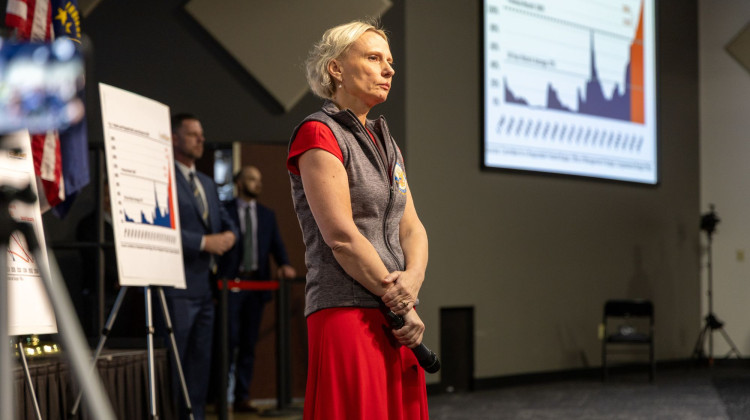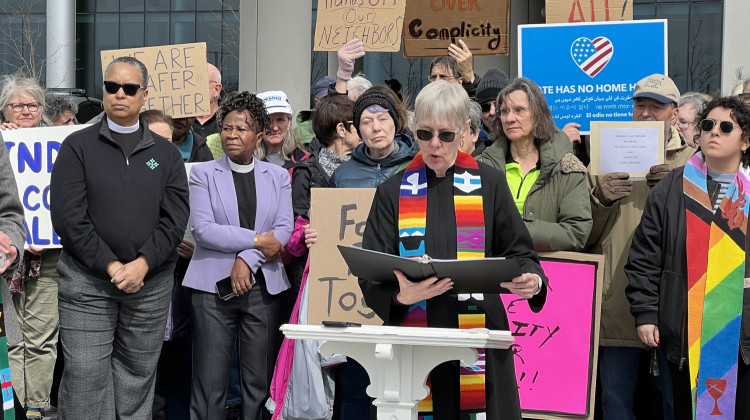This week the Indianapolis Metropolitan Police Department started a body camera pilot.
Officers and supervisors will wear cameras for the busiest shift -- between 1:30 and 10 p.m. -- in the busiest districts, which include North, East, and Southeast districts. The trial will last 45 days.
East District Commander Jerry Leary says officers start recording when they’re dispatched on an incident.
“For everybody that's involved in an incident, their perception may be different of what happened,” Leary says. “That camera gives you that third eye, that unbiased recording, so you can go back and review what happened and see it firsthand.”
Anyone may request a video through a link on Indy.gov.
Scott Kulig, body worn camera coordinator, says to make a request, someone needs the location, date and approximate time, and the name of one person in the recording who is not a police officer.
Kulig says there are four reasons why a request to release a video may be refused. These reasons are if it's going to impede an investigation, if it's a safety concern for someone in the video, if it's not beneficial to public welfare, or if it's going to hinder the ability to get a fair trial.
“If it passes all those requirements. It will go to our production team,” Kulig says. “They've got 18 things they need to redact out of any video, and so it'll go through them to blur out faces, they're making sure they cover up any personal identifying information.”
After the redaction is finished, a copy of the video will be sent to the requester. IMPD ran a much smaller body camera pilot in 2014. That trial did not result in a permanent program. IMPD say a program is now possible, after the city upgraded public safety technology infrastructure. Also, body cameras are now less expensive.
Leary says IMPD hopes to use this trial to develop a permanent program.
IMPD anticipates a full body worn camera program will cost between $2 and 3 million. This includes the cost of storage for audio and video, maintenance, software to redact video and the lease of equipment.
That cost will likely fall to Marion County taxpayers.
IUPUI currently has a private web-based community survey open to collect residents’ attitudes, expectations and concerns regarding IMPD officers wearing body cameras.
 DONATE
DONATE








 Support WFYI. We can't do it without you.
Support WFYI. We can't do it without you.